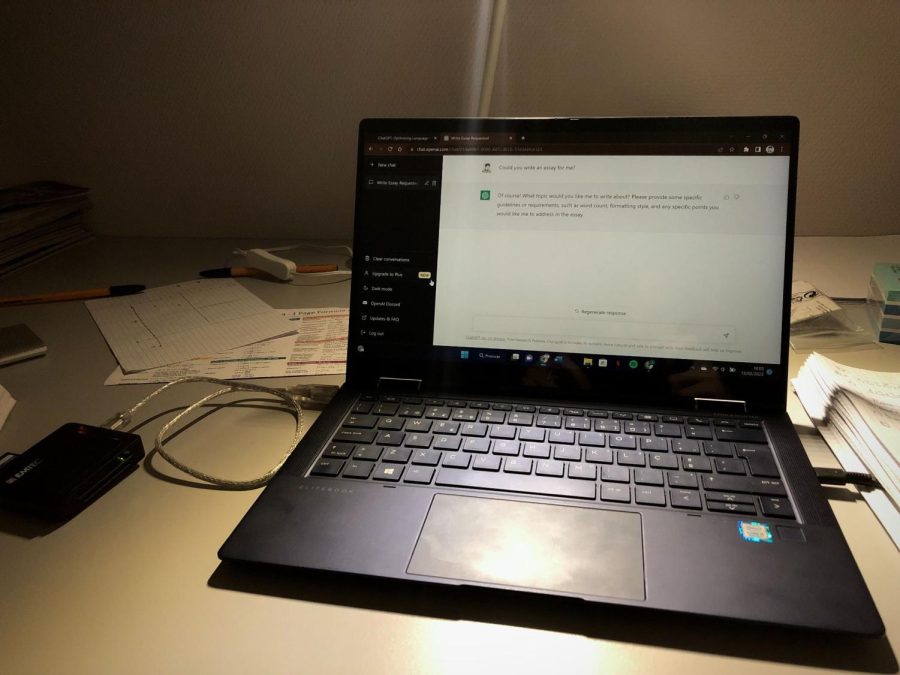The Future? Of Education
EDUC [AI] TION
More stories from João F.
On December 6 last year, the article “The College Essay is Dead: Nobody is Prepared for How AI will Transform Academia” was published in The Atlantic magazine, which has done extensive coverage of how Chat GPT and other similar programs are changing the world as we know it. Since that piece was published, thousands of articles have been written trying to predict, assess, or just digest the possible changes that this new revolutionary technology will cause on the most varied aspects of society. Some of these articles have even been totally or partially written by Chat GPT itself. Indeed, quoting the chatbot in an opinion piece has quickly become a cliché.
But let’s get back to the piece I mentioned at the beginning, written by Stephen Marche, a Canadian author and academic: besides the inevitable pessimism, what did it actually say? The article points out how Chat GPT is forcing “contemporary academia”, especially in the field of the humanities, to finally change after years of stagnation. Marche hopes that the coming changes will address the enormous rift that is now apparent between sciences and humanities because a post-Chat GPT world will call for students to have more diversified experiences.
Marche’s argument that Chat GPT can be used as an “opportunity” to change education is apparently supported by the International Baccalaureate Organization. Yes, in an article published in The Times titled “Why Chat GPT is an Opportunity for Schools,” a representative from the IB wrote that “those of us who work in the schools or exam sector should not be terrified by ChatGPT.” The IB compares Chat GPT and other AI software to spell-checkers and even calculators, reinforcing how the organisation merely sees them as a new tool. Instead of banning and fearing the chatbots, the IB proposes their healthy integration in the classrooms, where, under the guidance of teachers, students will learn how to better interact with them. By “interaction” the IB means the learning of skills such as spotting insufficiencies, bias, and other mistakes with the software and how to write clearly defined questions to get better answers.
All in all, the Head of Assessment Principles and Practice of the IB, Dr. Matthew Glanville, looks forward to a future where students will spend less time learning “the mechanics of essay-writing” and more “on understanding, describing and analysing problems.” In practice, this means that students are more than welcome to consult Chat GPT and other chatbots for any of their work, as long as they quote it. The IB made it clear in another post that AI technology is not exempt from academic integrity policy. Meaning that text, images, or graphs made by such technology and included in a piece of academic work without a quotation won’t be regarded by the organisation and will be subject to punishment.
Teachers are terribly divided on this issue, with many of them publicly stating their worries in their classes or in workshops focusing on this issue that schools such as SIS have been promoting. Many of them profoundly disagree with the relatively lenient approach that is being pushed by the IB, as they are simply not optimistic about this new technology. What especially worries them is the loss of the writing skill in students, which has already been devalued since the rise of other new technologies but mainly because of the limitations of Chat GPT. Because Chat GPT only bases its answers on content that exists on the web, it can’t, at least for now, have original ideas. The over-reliance on this technology would then cause stagnation and possibly even a decline in writing, theories, and everything related to knowledge and thought.
The QQ can report that Chat GPT is being used by students of Stockholm International School. It is hard to assess, though, how widespread the current use of the technology is in terms of scale or distribution among grades. Teachers are aware of this and taking appropriate measures, with many vouching to use software that can detect the ‘help’ of an AI technology in essays and other texts.
For now, the use of the technology will be surrounded by what has been seen lately, exaggerated pessimism or optimism, confusion, scepticism, etc. Nobody seems to know what Chat GPT will bring that is new and never before seen, but everybody seems to have an opinion on how the technology is going to change the structures currently in place. Is that a sign that Chat GPT is, like Dr. Glanville says, just a tool? Or that it will wreck the education system itself and have unexpected, terrible consequences?


